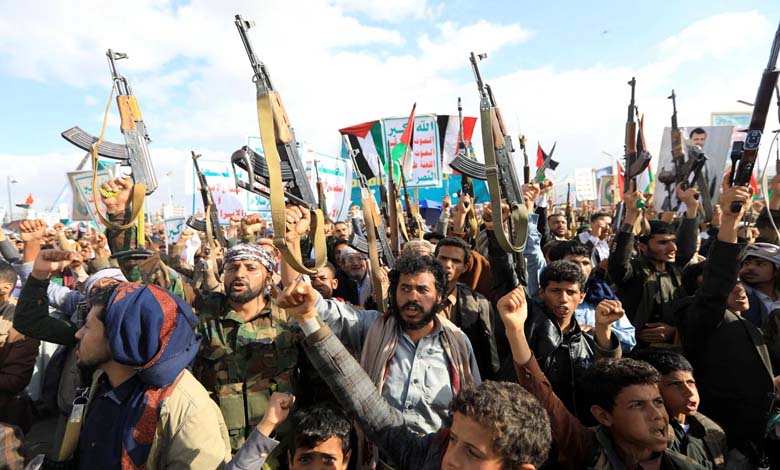Houthis Hide Their Dead… Funerals Banned and Condolences Forbidden

The Houthi militias have banned their media outlets from covering the funerals of their dead, in a desperate attempt to conceal their losses following U.S. airstrikes.
-
Houthis Torture a Young Man to Death for Refusing to Join Their Training… Details
-
4 Days Until the Houthis Are Designated as a Terrorist Organization… What Is the Militia’s Future?
Sources in Sanaa said that since early April, the Houthis have officially prohibited any media coverage or reports of the funerals of their leaders and fighters killed in American air raids.
According to the same sources, the Houthis urged, during a recent meeting, their media managers – particularly the Al-Masirah channel, the mouthpiece of the militias, and the coup version of SABA news agency – not to publish any material related to collective funerals.
The Houthis recently held three separate meetings with media leaders in Sanaa to discuss so-called “media handling mechanisms” regarding the U.S. strikes, threatening penalties for those who violate the instructions on reporting their casualties.
-
The Houthis Attempt to Seize Residents’ Lands in Taiz and Turn Them into Mobilization Camps
-
Signs of Major Disputes between the Muslim Brotherhood and the Houthis… Details
Repression and Blackout
Despite the media blackout, the Houthis have continued to organize daily individual and group funeral processions in front of the public, but they have prohibited even the families from filming or sharing the events and from holding condolence ceremonies.
This ban even extends to their own leaders, as seen in the case of prominent Houthi figure Ridwan Al-Haimi, who admitted that the group barred him from holding a mourning ceremony for his father, Ali Abdullah Al-Haimi, who held the fake rank of “General.”
Al-Haimi, whose father is believed to have been killed in a recent American strike, wrote on his X account: “Due to current security conditions, we inform you that condolences for our father have been postponed until further notice.”
-
The Houthis Struggle to Avoid al-Assad’s Fate… What Are They Doing?
-
“The Bells of Damascus” Alarm the Houthis: Yemeni Calls Intensify to “Uproot the Militias”
Meanwhile, a citizen in Hodeidah said that the Houthis confiscated his phone on April 10 when he tried to film a funeral procession passing by in the city.
He said he was unaware of the sudden internal decision banning the filming of such events, which were previously used as propaganda to recruit people into the Houthi ranks.
The militias also prohibited filming at the locations hit by American strikes. Dozens were recently arrested in Hodeidah, Sanaa, and Saada for recording airstrikes targeting homes used by the militias as command centers.
-
Canada Adds Houthis to Terror List: Reasons and Consequences
-
Houthis on Canada’s Terrorism List: Implications and Expectations
Concealing the Bleeding
The Houthis‘ decision to block media coverage of funerals came amid significant losses sustained from U.S. strikes, which killed senior, mid-level, and lower-ranking leaders.
The Houthis firmly refuse to acknowledge these losses, especially those among their leadership. Since the start of the U.S. airstrikes on March 15, they have only published names of non-prominent fighters or low-ranking officers, according to analysts.
The last collective funeral held by the Houthis was on March 29, after which all publication was banned, in an effort to reinforce the narrative that U.S. strikes were hitting civilian areas and that the victims were civilians, not military personnel.
The Houthis admitted to the deaths of around 200 members and leaders during the first quarter of this year, including 77 killed in U.S. airstrikes – a turning point in the group’s mounting human losses, according to observers.












